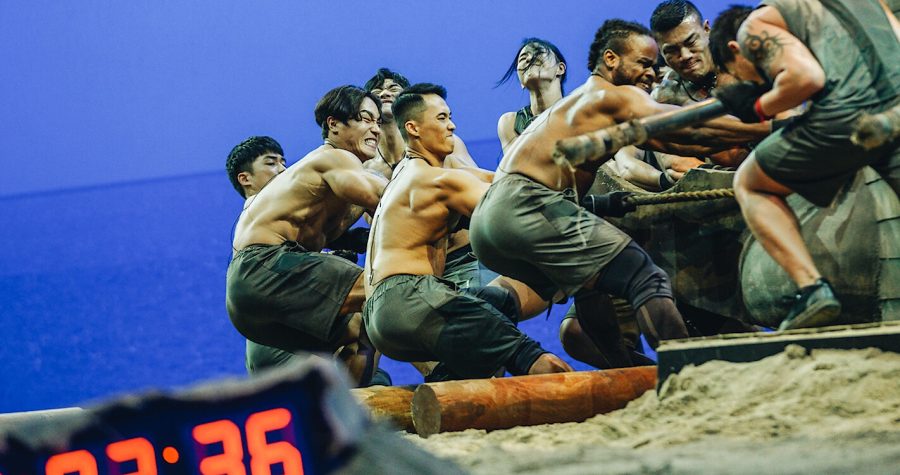Physical: 100 Much More Than Another Version of Squid Game
Physical: 100 is a reality competition series that has received critical acclaim.
Netflix’s Physical: 100 has been taking the world by storm so far with an audience rating of 81 percent on Rotten Tomatoes and an average rating of 4/5. The nine episodes that aired since Jan. 24 followed 100 competitors — including firefighters, Olympic medalists, dancers, and cheerleaders — as they competed in a variety of challenges testing their physical fitness. The ratings, critical praise, and thirst trap TikTok edits were a testament to how successful the South Korean show was in breaking through in the U.S., yet with this success came the inevitable Squid Game comparison.
The show doesn’t shy away from these references either. A 300 million won, or $230,000, prize awaited the winner, an anonymous voice guided the competitors, and instead of dying, those eliminated destroyed a marble bust of their bodies with a hammer. There is even a “50 percent survival rate” on the first test. The tests themselves include Herculean challenges — literally. Competitors must work together to move a one-and-a- half-ton ship, carry a boulder on their back in resemblance to the punishment of Atlas, and climb up moving ropes in the Wings of Icarus challenge. Even some of the competitors themselves were aware of the potential references.
“I had a feeling it would be like Squid Game,” Korean-Japanese MMA fighter Cho Sung-hoon remarked before the pre-quest challenge.
Besides the unique challenges, the show is unique because it does something almost unheard of, especially for American audiences, and something that Squid Game in particular doesn’t do: It makes Korean people human.
In Western media especially, it’s not uncommon for East Asians to be portrayed as two-dimensional. Men are often seen as effeminate, and women are passive and submissive. Physical: 100 breaks down these barriers as well as stereotypes about Asian athletes, backed up by the model minority myth. We are making progress with greater representation of East Asians in sports — for instance, athletes such as Nathan Chen, Shohei Ohtani, and Sunisa Lee have achieved success on big stages. Physical: 100, though a little dramatic, is a first step, especially for Western viewers to see Asians as athletes.
In making the show’s characters well-rounded, Physical: 100 makes sure to highlight that the competitors aren’t perfect either. For instance, the women competing, who only make up a third of the competitors are often looked down upon by the men, who doubt their abilities as athletes or valuable contributors as teammates. While we don’t get in-depth stories on everyone competing — after all, there were originally 100 competitors — the introduction segment in the debut episode lasted nearly 27 minutes before the actual challenge began. The competitors were allowed to be authentic — confident, sexy, brave, persistent, and vulnerable. And while it can feel at times heavily scripted and edited — it is a reality TV show after all — the viewer can still feel invested in who these people are as athletes. Physical: 100 is intense, but it is not brutal. It is simply as human as reality sports TV competitions can be.
Squid Game itself is a critique of South Korea’s capitalist society. In doing so, it emphasizes how players, like the infamous and controversial Cho Sang-woo, devolve to becoming inhumane animals driven by their own desperation to survive. In the end, however, the games are an allegory for real-world issues, not an event intended to be recreated.
For Physical: 100, hearing the plot and the aesthetic makes it seem like American Ninja Warrior on steroids. But on the inside, the support and camaraderie resembles that found on The Great British Baking Show. For instance, in the pre-quest challenge that required competitors to hang from a metal bar for as long as possible, competitors who dropped out were eagerly cheering for the others to continue going and stay strong.
Comparing Physical: 100 to Squid Game — whether it be calling it the wholesome version, the better version, or the worse version — disregards the strides made by both shows. Instead, it makes the former seem like a bloodthirsty and cutthroat competition, the competitors equivalent to the nameless faces on Squid Game. Both shows are great pieces of media, but they are independent of each other, not complementary.




